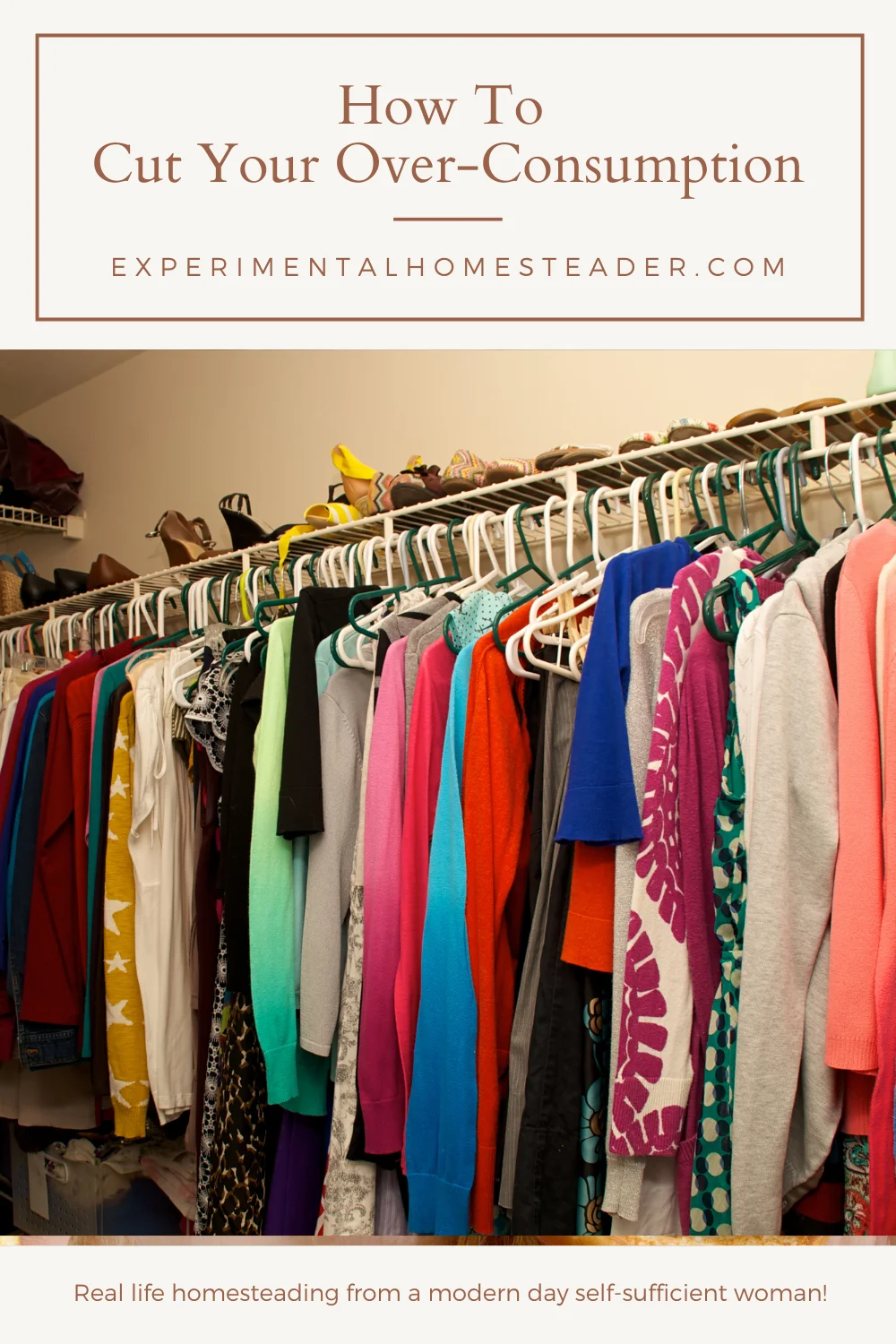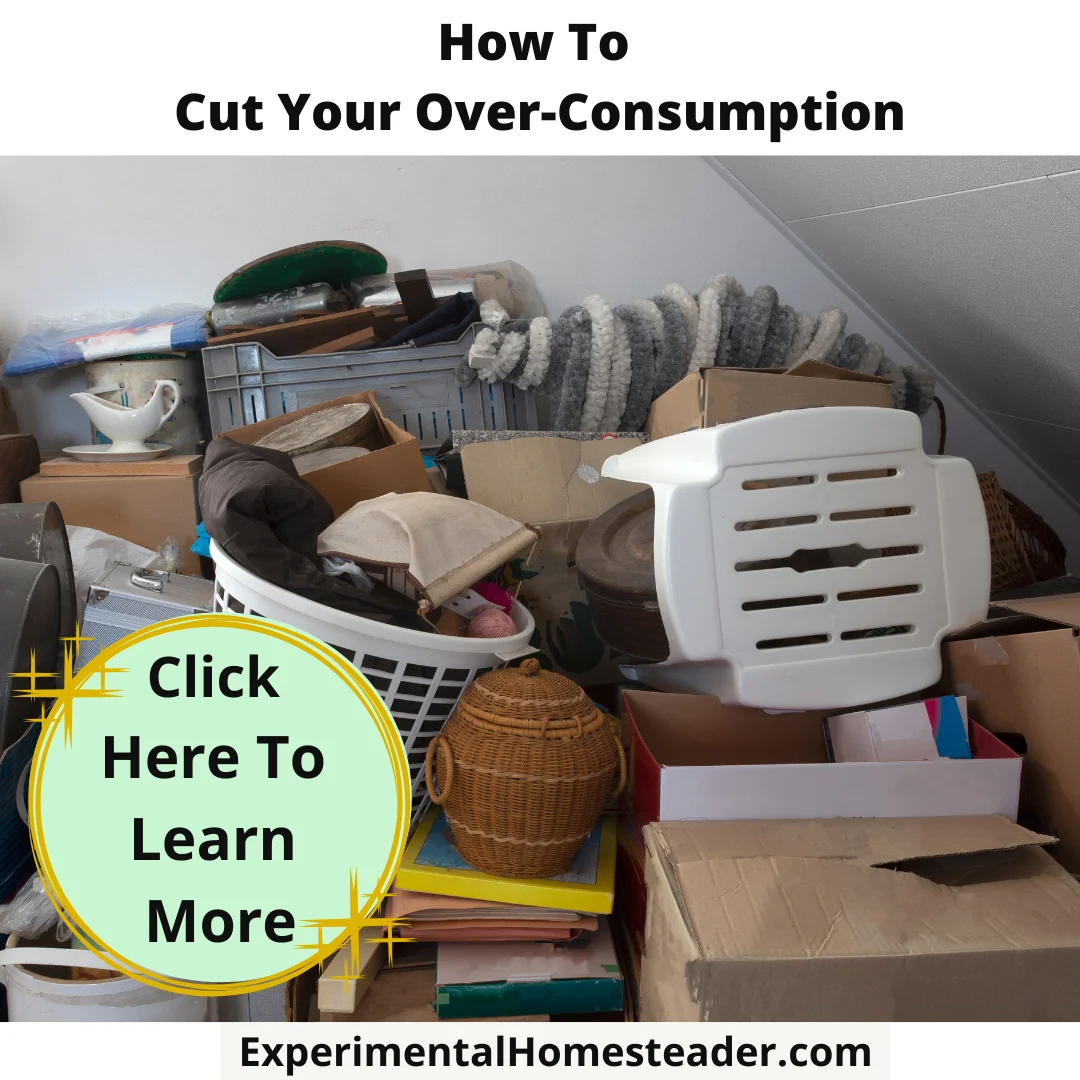Things can quickly take over your life. It is all too easy to get caught up in indulgence especially as a product reviewer. Perhaps you indulge in food. Maybe you drink too much alcohol or eat too many sweets. Or you might find that you shop for things or review things you just don't need.
Often this overconsumption is an attempt to fill a void - and I know that is the issue I am having. Boredom, sadness, stress and other emotions are a common cause of over-consumption. Take heart, there is a way to cut back and regain control of your life. I am starting to do this by saying no to review items I don't need and clearing the clutter in my home. Here are some great tips for things you can do to try to stop any overindulgence you might be dealing with.
1. Find out why you over indulge because that is where the source of the problem is. For me it was a combination of spending too much time alone, stress and depression. Begin by spending some time meditating or contemplating why you are overindulging. What emotion are you not trying to feel? Think it thorough and try to figure out what is the underlying purpose for your over-consumption? For me it was a way to make me feel better and take my mind off the problem at hand - however at the end of the day I ended up just feeling overwhelmed by all the stuff.
2. Clean out your house - and donate the excess to a good cause. One of the best ways to regain control is to create a fresh start and you can easily do this by starting to clean out your existing clutter. For those who are overindulging in junk food, clean out the cupboards and donate unopened items to a local food pantry. If you are over-consuming a particular type of food or beverage, get it out of your home and avoid the urge to buy more. Take anything that is unopened to your local homeless shelter. Donate gently used items to a local thrift shop - or have a garage sale, but don't let the stuff stack up again or you will be fighting a vicious cycle that gets harder and harder to put an end to.
If you have acquired belongings, get rid of what you don't need. You might consider using the three box approach - a box for what you are going to keep, what you are going to throw away and what you are going to donate. Each item in your home will fit into one of those three categories. You can create a fourth basket for items that you can sell. Instead of using the money to buy more stuff you don't need consider using the money to help pay some bills or if you don't need the money, donate it to a good cause.
3. Create a place for everything in your home and make sure everything has a place. This does not mean shoving it into a closet, something I am guilty of. If it is important enough to keep then it needs to have a proper place. Bak the time to label, organize and display your stuff so you can easily access it - after all what is the point of keeping it if it is in a box and not accessible?
4. Do not buy something unless you are giving something away or unless it has a specific purpose. Become aware of your consumption. For example, if you go out to eat and you have a habit of over consumption, be aware of this, order less food and skip the dessert. Choose your meal carefully making sure to limit yourself to only what you need to eat for that meal - and avoid ordering extra to take home. This step might be the most difficult since it requires conscious decision making. Ask yourself, do I really need this? Why do I need this? Ask both questions before each meal, drink or purchase.
5. Budgeting helps you stay on top of consumption and avoid overspending. It requires you to create a spending category for everything and live within the budget you create. Your budget should include meals out, groceries, entertainment and all additional purchases plus your monthly bills. Budgeting requires you to think through each purchase you make and focus on what is necessary to pay instead of what you want. It forces you to make a conscious decision which is not always easy. Most over consumption is not based on conscious decision making skills - and often it is based on impulse purchases.
Finally, consider volunteering in your community. When you spend your time giving back to others, you stop thinking so much about what you want or don't have. Volunteer where your strengths, skills and interests are a good fit. When you focus on giving back to the world, you'll be too busy to think about what you want or don't have. You'll also feel great about yourself and over time find yourself becoming more confident. Gratitude is one of the best cures for over consumption.



